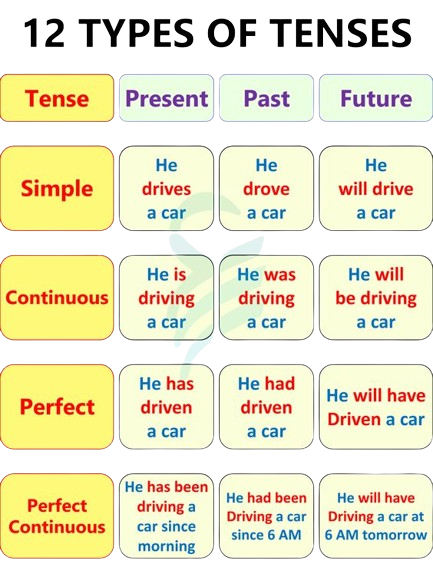“Dear woman, why do you involve me?” Jesus replied. “My time has not yet come.” – John 2:4
In unity, verbs arise
The Bible records 29 miracles performed by Jesus, most of which involve healing people. However, the first miracle was turning water into wine, as follows:
“This, the first of his miraculous signs, Jesus performed at Cana in Galilee. He thus revealed his glory, and his disciples put their faith in him. (John 2:11)
Before starting his formal ministry, Jesus, his mother, and his disciples were invited to a wedding. When the wine ran out, Jesus’ mother told him, “They have no more wine.” Jesus initially seems to refuse but eventually turns water into wine, serving the guests with what appears to be exceptionally fine wine. The master of the banquet tells the bridegroom:
“Everyone brings out the choice wine first and then the cheaper wine after the guests have had too much to drink; but you have saved the best till now. (John 2:10)”
German journalist and pastor Werner Tiki Küstenmacher published a book titled “JesusLuxus.” The ‘Luxury’ he refers to is not about wearing fancy clothes and enjoying elegant parties but signifies spiritual abundance freed from the worries and anxieties of a constrained life. Thus, it might be apt to interpret his words as ‘The Luxury of Jesus’ in an ironic sense. True ‘Luxury of Jesus’ involves appreciating the abundant gifts from God to His creation, finding wealth in poverty, salvation in suffering, and abundance in need, with a heart of gratitude. Yet, if circumstances allow, opting for fine wine over poor quality might also be considered part of ‘The Luxury of Jesus.’

Like Chinese, which has no concept of time in verbs, there are languages sensitive to time, like English. The example above includes verbs that express three different times.
“Dear woman, why do you involve me?” Jesus replied. “My time has not yet come.
Fortunately, Korean also changes verbs according to past, present, and future, making the concept of tense in English not so difficult. Tense should not be memorized but understood as a common-sense concept of time already familiar in our daily lives. The basic tenses in English, similar to ours, are present, past, and future, and they become more complex with four aspects each: simple, perfect, continuous, and perfect continuous, totaling up to 12 tenses.

Though it seems complicated, many of these tenses are not commonly used today, and the rest can be chosen based on common-sense understanding. The challenging part for us is the perfect aspect. Therefore, once this concept is clarified, it shouldn’t be too difficult.
In terms of time, we may not know when it was, but there must have been a beginning. This beginning is called Alpha (α). And in the Bible, the end is referred to as Omega (Ω).
‘I am the Alpha and the Omega, the First and the Last, the Beginning and the End.’ (Revelation 22:13)
Let’s consider time having a beginning and an end. The beginning is the origin, and the end is eternity. If we imagine today as a single point, the past lies between today and the beginning, while the future lies between today and eternity. The basic forms of verbs expressing events at each point in these domains are the past, present, and future tenses.
Grammar books often categorize the present tense into various subcategories such as ‘actions or states in the present,’ ‘habitual actions in the present,’ or ‘immutable truths and facts.’ However, understanding the present tense doesn’t need to be overly complex or memorized. Common sense suffices.
Similarly, the future tense need not be overcomplicated. When expressing facts or predictions about the future, we use the future tense. In the past, there were separate rules for simple future, future with intention, and first, second, and third person usage. Nowadays, we mostly use the auxiliary verb ‘will’ to express the future tense.
In reality, everyday English expressions can be formed using just the basic forms of past, present, and future tenses. However, if we want to vividly describe events occurring over a period rather than at a single point in the past, present, or future, we need the progressive aspect. If we were to represent this on the time diagram, the progressive aspect would be shown as a line rather than a point. Let’s look at the following Bible verse:
‘The people are building it with large stones and placing the timbers in the walls. The work is being carried on with diligence and is making rapid progress under their direction.’ (Ezra 5:8)
To vividly express the ongoing construction, we use the progressive aspect, which conveys the meaning of ‘doing something.’ To form the progressive aspect, we use the structure ‘be verb + verb-ing.’ In the past, it was ‘past tense of be + verb-ing,’ and in the future, it’s ‘will be + verb-ing.’
The present progressive tense can also indicate the near future. Since the present progressive refers to a period rather than a single point in time, it encompasses the near future as well. For instance, consider the verse from the Gospel of John:
‘I came from the Father and entered the world; now I am leaving the world and going back to the Father.’ (John 16:28)”
When referring to the near future, we often use ‘be going to’ instead of ‘will.’ This is because it implies an ongoing process, and the end of that process will occur in the future.
‘For the Son of Man is going to come in his Father’s glory with his angels, and then he will reward each person according to what he has done.’ (Matthew 16:27)
Sometimes, when expressing actions in the near future, we also use ‘be about to.’ This usage likely stems from a mindset that perceives the progressive aspect as a period. The term ‘about’ implies an approximate point in time, allowing some flexibility before and after that point. In the following Bible verse, ‘is about to happen’ indicates that it could occur at any time:
‘Be always on the watch, and pray that you may be able to escape all that is about to happen, and that you may be able to stand before the Son of Man.’ (Luke 21:36)
However, there are verbs that cannot be used in the progressive aspect. This is common sense. Words like ‘know,’ ‘have,’ ‘become,’ and ‘resemble’ inherently carry the idea of ongoing action.
On the other hand, the perfect tense is a concept absent in Korean. English grammar books describe the perfect tense as expressing “continuation, completion, experience, or result” up to a certain point. However, it signifies an action that continued until a specific point (present perfect for the present moment, past perfect for a past point). In other words, it emphasizes an event that was completed but persisted. Let’s consider Jesus’ words:
‘As I have loved you, so you must love one another.’ (John 13:34)
This conveys continuous love from the past until today. Hence, we use ‘have loved’ instead of just ‘loved.’ Similarly, the example sentence ‘My time has not yet come’ emphasizes the ongoing process leading up to the moment when it will come.
The forms are as follows:
- Present perfect: ‘have + past participle’
- Past perfect: ‘had + past participle’
- Future perfect: ‘will have + past participle’
There’s also the perfect progressive tense, although it’s less commonly used. It combines completion and ongoing action for emphasis. Let’s see an example from the Bible:
‘I have been praying here out of my great anguish and grief.’ (1 Samuel 1:16)
‘By the seventh day God had finished the work he had been doing; so on the seventh day he rested from all his work.’ (Genesis 2:2)
Verb Conjugation
Verbs change according to the time the action takes place. However, verb conjugation in English is relatively regular. The usual order of verb forms is [base form – past form – past participle form – present participle form].
The term ‘participle’ essentially refers to words derived by adding a suffix to the original verb. For past and past participle forms, the suffix <-ed> is added to the base form, and for the present participle form, the suffix <-ing> is used.
For example:
ask – asked – asked – asking walk – walked – walked – walking
‘I saw that all who lived and walked under the sun followed the youth, the king’s successor.’ (Ecclesiastes 4:15)
For verbs ending in <-e>, only <-d> is added. For the present participle form, remove <e> and add <-ing>. This is also to resolve issues with pronunciation.
live-lived-lived-living love – loved – loved – loving use – used – used – using
Exceptions: be – am, is, are – was, were – been – being
For verbs ending in <-ie>, change <-ie> to <y> before adding <-ing>. This prevents too many ‘i’ sounds, which could be cumbersome in pronunciation.
die – died – died – dying lie – lied – lied – lying
For verbs ending in a vowel + y, simply add <-ed> and <-ing>. However, for verbs ending in a consonant + y, change <y> to <i> and then add <-ed>. The present participle form keeps the <-ing> suffix.
play – played – played – playing stay – stayed – stayed – staying
copy – copied – copied – copying marry – married – married – marrying
‘Now there were seven brothers among us. The first one married and died.’ (Matthew 22:25)
For single-syllable words ending in a single vowel + single consonant, double the final consonant before adding <-ed> and <-ing>. If the word has more than one syllable and ends in a single vowel + single consonant, and the last syllable is stressed, double the final consonant before adding <-ed> and <-ing>. This might be intended to make the ‘tail’ more visible due to the small ‘body’ of the word.
stop – stopped – stopped – stopping beg – begged – begged – begging
permit – permitted – permitted – permitting
‘Some people brought a blind man and begged Jesus to touch him.’ (Mark 8:22)
‘Jesus replied, “Moses permitted you to divorce your wives because your hearts were hard. But it was not this way from the beginning.’ (Matthew 19:8)
The statement implies that divorce should not be allowed except in cases of marital unfaithfulness.
For verbs ending in <-ic>, add <k> before <-ed> and <-ing>.
picnic – picnicked – picnicked – picnicking mimic – mimicked – mimicked – mimicking
What complicates matters are the irregular verbs that do not follow these patterns. For instance, ‘lie’ can mean both ‘to recline’ and ‘to speak falsely’. The latter follows regular conjugation patterns: lie – lied – lied – lying. However, when ‘lie’ means ‘to recline’, it changes irregularly: lie – lay – lain – lying.
‘Sarah was afraid, so she lied and said, “I did not laugh.” But he said, “Yes, you did laugh.”’ (Genesis 18:15)
‘I did not call; go back and lie down.’ So he went and lay down. (1 Samuel 3:5),
Although irregular verbs present a challenge in verb conjugation, they are not completely arbitrary and follow some patterns. It’s useful to keep a list of common ones for reference.


답글 남기기